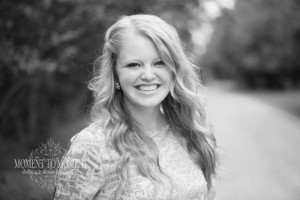 In his early 20s, Jake Friedman was trying to grow a beard, gain “density” and choose between concerts and galleries to meet new friends. It was 2011, and he had moved from Maryland right after receiving degrees in English and philosophy from a small, liberal arts college, McDaniel. The reason for moving? He didn’t have much going for him where he was, his friends were moving, and even though it’s hot here in the Valley, his favorite band, Andrew Jackson Jihad, is based in Phoenix and that was cool enough for him.
In his early 20s, Jake Friedman was trying to grow a beard, gain “density” and choose between concerts and galleries to meet new friends. It was 2011, and he had moved from Maryland right after receiving degrees in English and philosophy from a small, liberal arts college, McDaniel. The reason for moving? He didn’t have much going for him where he was, his friends were moving, and even though it’s hot here in the Valley, his favorite band, Andrew Jackson Jihad, is based in Phoenix and that was cool enough for him.
Friedman struggled to make new social connections after arriving, a common problem in Arizona due to its history and geography, he said. “I was not the kind of person to just go out and introduce myself to random strangers.” Furthermore, he sought a more durable, substantive relationship. “Sharing a space is important, but it doesn’t necessarily reveal anything about who you are or how you feel as a human being,” he said. Local writing groups were his cure; yet as he expanded his reach into open mic nights and zine readings, he was plagued by talented locals he discovered who had no “clear trajectory” for translating their activities into an artistic or at least semi-professional practice. He also, inevitably, found works that would have gained from more peer review and edits. Thus, the seed was planted for what would become Four Chambers, an independent community literary magazine, in June of 2011.
“What we have are people doing creative work without having a way to transfer that work into revenue…so what I wanted to do was to basically start putting local authors on the market and have a local market for local literature,” he said. In June, he began accepting submissions for publication of Four Chambers’ first literary journal. Today, there are four journals featuring the writings both of newcomers and established, Arizona State University professors, and at the launch of each issue, Four Chambers awards $200 in prizes to the featured writers.
When discussing Four Chambers, Friedman is careful to avoid terms like “author,” and even “writer,” in fear of placing a barrier between the art form and person who can practice it. “I think this is especially relevant for literature because there are so many people out there who I think do write in one way or another but the perception of themselves is that they journal or write poetry…they don’t share it.”
With a mission intended to build community, Four Chambers hosts several public events like mic nights and writing groups, in attempts to encourage closet writers to join its force. “I think it’s very realistic for people to be engaging in this practice, for that to be a meaningful practice, regardless of whatever professional or monetary aspirations they may have,” Friedman said. “More importantly, I think (it’s realistic) for that work to be made accessible to people who will value it and respond to it and recognize it.”
Though Friedman has worked without pay around 15 hours a week since 2011 to make Four Chambers a reality and says it could easily fill a full-time job, considering he’s “always behind,” the company has an optimistic future that will expand its breadth to single-author books and national-scale publications. The ideal situation, Friedman said, would be for Four Chambers to register as a nonprofit organization with a membership base and donations and grants to fund three to four employees.
For readers interested in submitting work to the Four Chambers literary journal, which typically accepts one to two percent of its submissions, Jake Friedman’s advice is this:
“I don’t care if anything is well written if it doesn’t have anything to say. I really want people to be brave and honest in their writing, but I also want them to be self-aware, and I want them to challenge themselves,” he said. “If you’re going to write, you need to justify that by having something to say. If you’re not going to say anything, don’t write. If you’re going to say something, go for it. Say it, I’m reading it. I’m asking you to send me this stuff. You have an audience – you have me and our team and our readers who want to hear what you have to say, so don’t hold back, and explore yourself deeply.”














